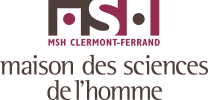Cold Doings: Early Modern Actions for Our Warmer World
Invité par la Maison des Sciences de l'Homme de Clermont-Ferrand, Lowell Duckert (University of Delaware - USA) proposera une conférence intitulée : « Cold Doings: Early Modern Actions for Our Warmer World », le mercredi 20 mars à 17h00, à la MSH, amphi 219. Cette conférence sera donnée en anglais.
Biographie
Spécialiste d'écocritique et du théâtre anglais de la première modernité, Lowell Duckert est maître de conférences à l'Université du Delaware (USA). (En savoir plus...).
En résumé
My presentation asks a simple question: what is cold? Natural philosophers, explorers, and artists of the sixteenth and seventeenth centuries offered a variety of responses. Cold was a material substance comprised of “frigorifick atoms”; it was the elemental force behind freezing, or, “conglutination”; it pierced bodies and plugged up its pores; it was a shapeshifter that appeared as icebergs, snowflakes, and sheets; it lived in the “frozen zone” of the upper globe, but it also rode the north wind and spread out across glaciers; it took, prolonged, and gave life; and it was intensely pleasurable. Cold Doings: Early Modern Actions for Our Warmer World is an experimental book project that uncovers cold’s dynamism at different degrees of intensity, traces its assortment of agential forms, and visits its energetic, far-north places. To be clear, reading centuries-old texts will not save our vanishing ice and snow. But at a time in which popular climate studies obsess over “ends” (and “the end”) of a planet headed for meltdown, or a world “after” or “without” ice, I argue that the doings of early modern cold assist us in counter-apocalyptic thinking. Poems, plays, treatises, and travel accounts of the period crucially reframe how we view the cold of the past as well as the present, lending us a creative vocabulary to reimagine Arctic relations right now.
Lowell Duckert





